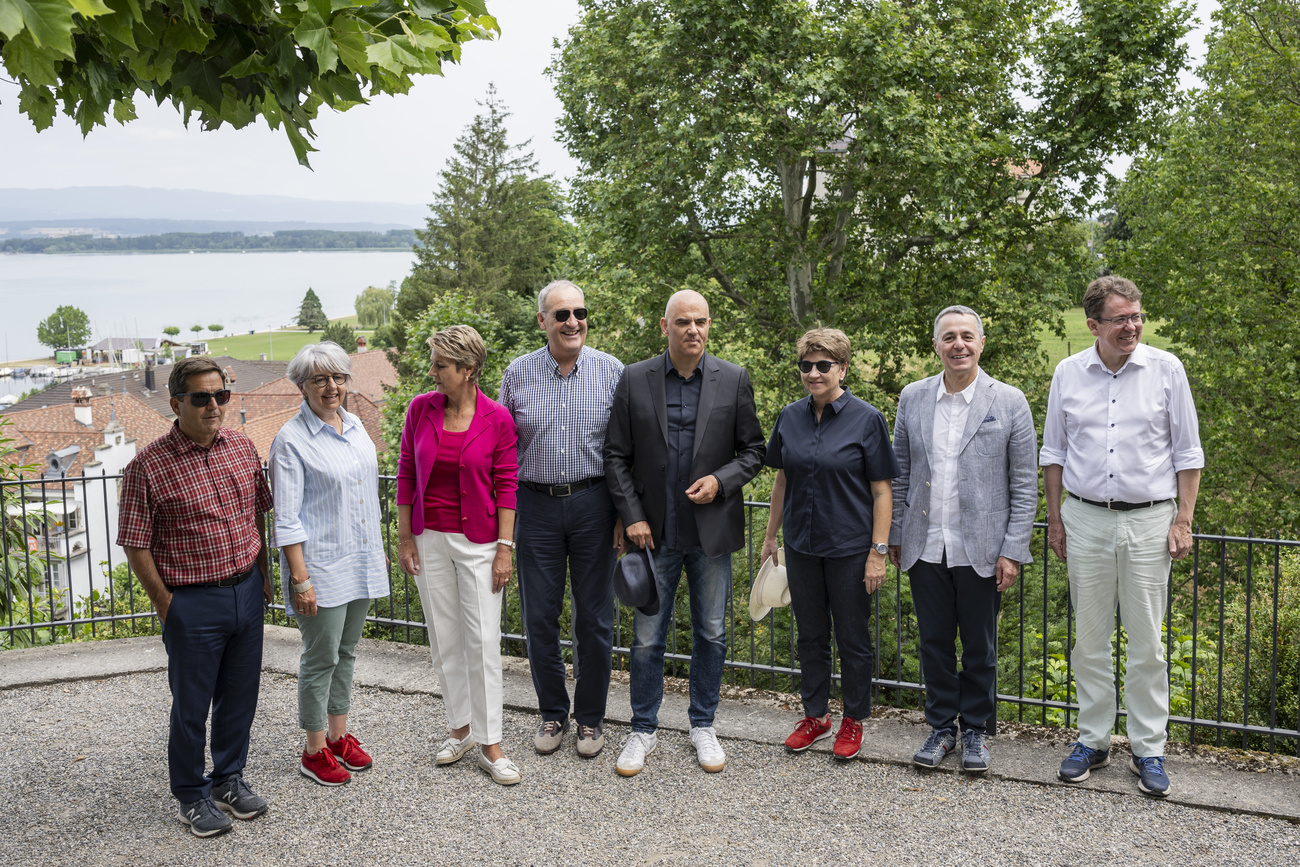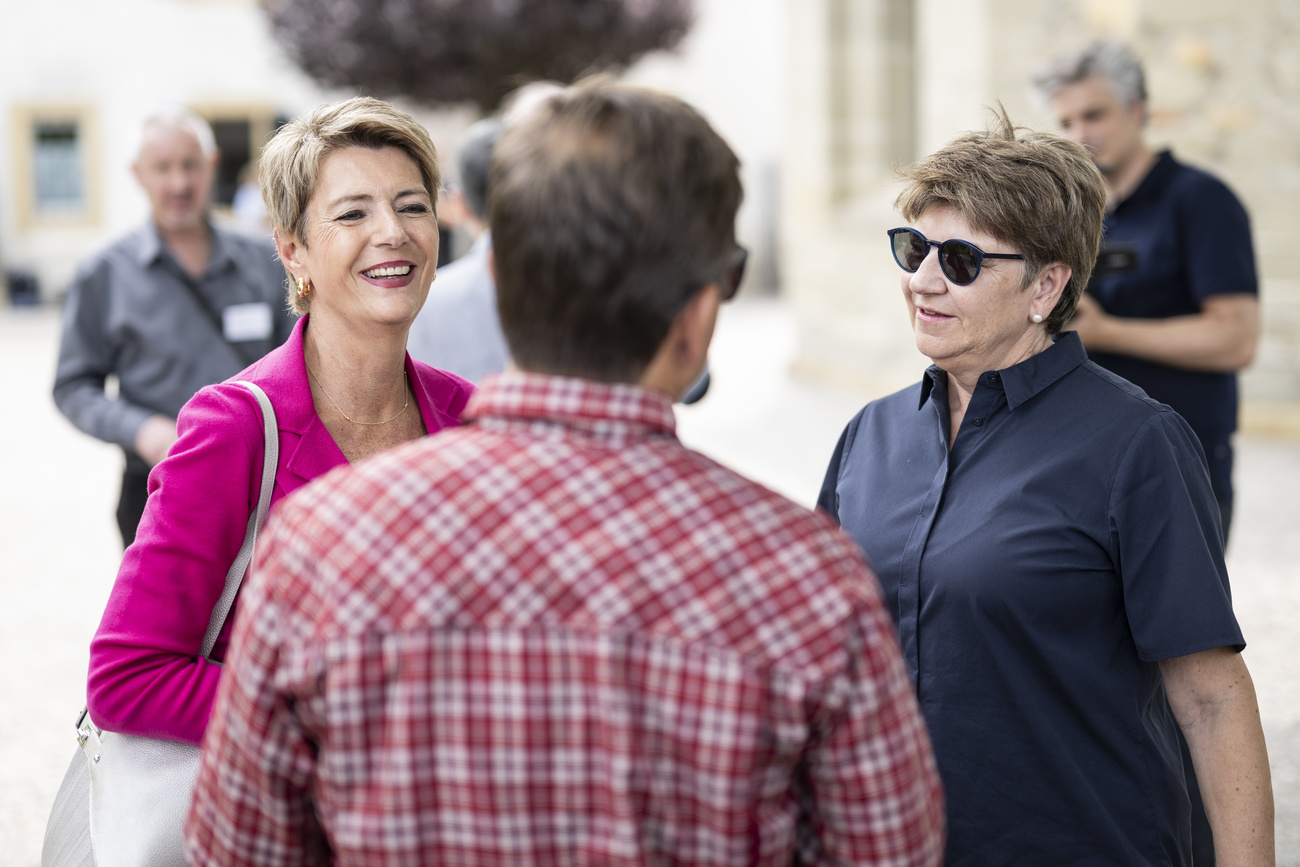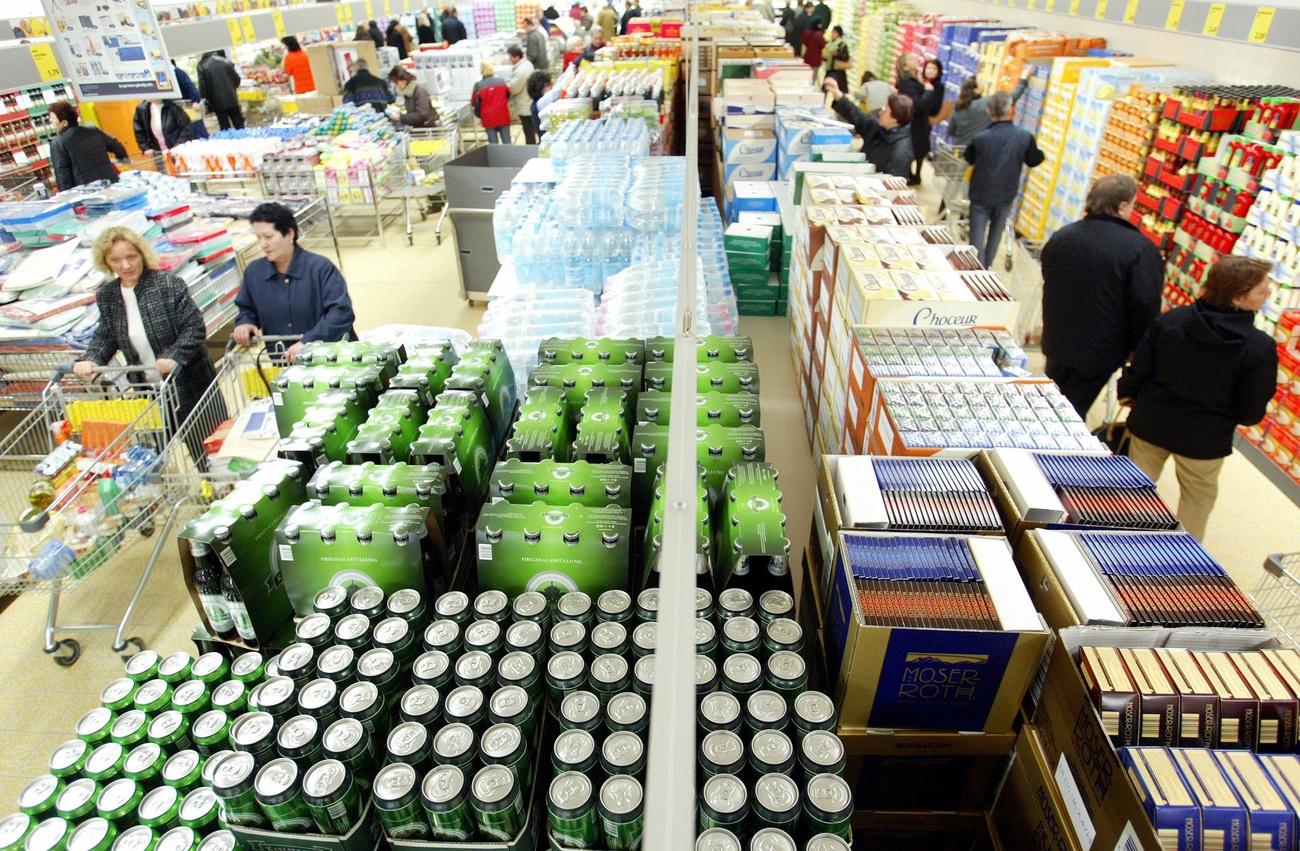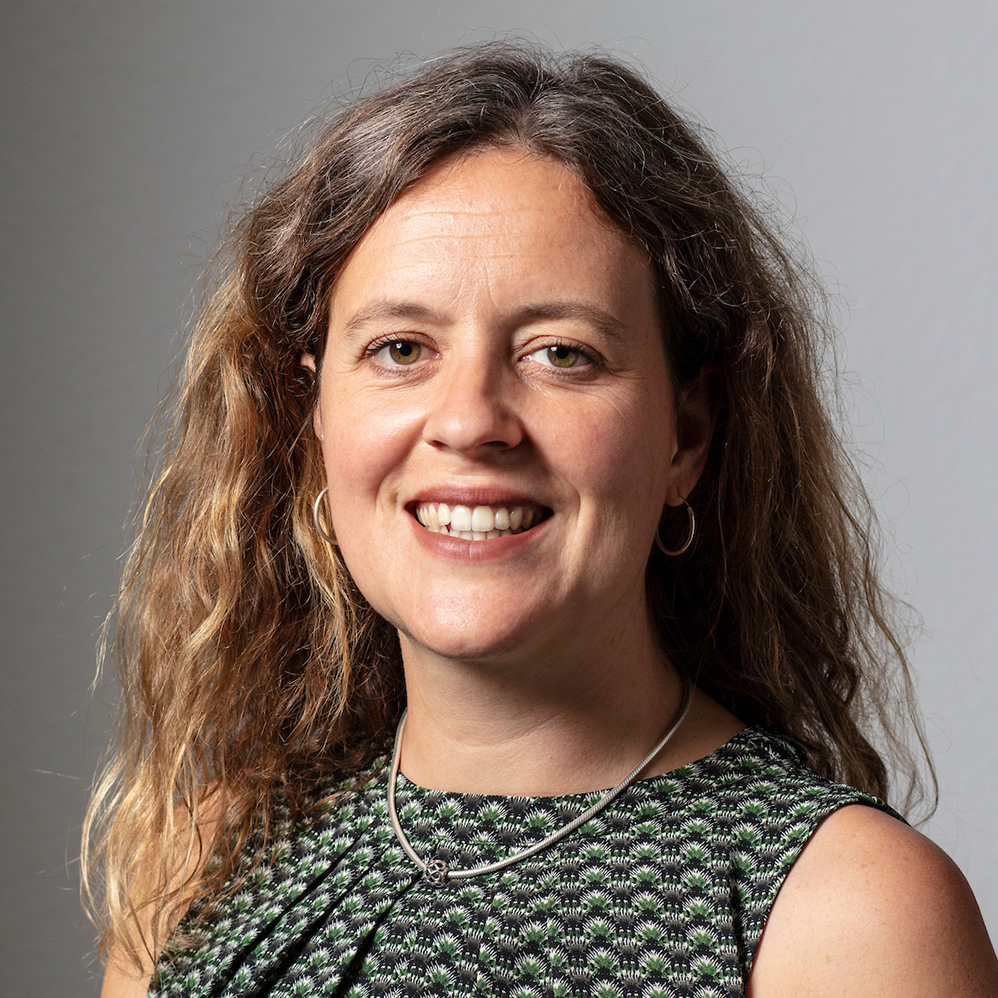
Switzerland Today
Dear Swiss Abroad,
Why are some Swiss supermarkets turning their lights and announcements down for a few hours a week? And what consequences will a fatal Swiss cycling accident have for the Tour de France? Here are the latest news and views from Switzerland on Thursday.

In the news: AI creates believable disinformation, the government goes walkabout, and Asian hornets spread around the country.
- The seven members of the Swiss cabinet plus the federal chancellor slipped into their smart casuals and began their annual two-day governmentexcursion today (pictured, Finance Minister Karin Keller-Sutter, left, and Defence Minister Viola Amherd). This year they visited Fribourg, the home canton of Interior Minister Alain Berset, who holds the rotating presidency this year.
- Artificial intelligence (AI) language tools have “an unsettling knack for producing highly persuasive disinformation” that could erode democracies, according to a University of Zurich study. The study called on 697 participants to test the difference between human-composed tweets and those generated by AI technology, particularly OpenAI’s GPT-3. GPT-3 tweets were generally considered more accurate and to contain more easily comprehensible information.
- The Asian hornet is spreading rapidly in Switzerland, with 66 sightings already reported in seven cantons this year, according to a bee health organisation. Favourable weather conditions are aiding the invasive species’ expansion. Asian hornets pose a threat to insects, particularly honeybees, as they hunt them to feed their larvae. When natural food sources become scarce in late summer, they increasingly target bee colonies.

After the Swiss Federal Railway’s silent carriages, a new concept is emerging in Zurich: silent supermarkets. This is aimed primarily at people with autism.
Supermarkets are usually saturated with noise and visual pollution. For people with autism, this can be a real nightmare, as they often have heightened sensitivity. “It’s simply chaos. Lots of noise, lots of light, lots of flickering. It’s too many stimuli at once. It’s very tiring,” a customer with autism told Swiss public television, RTSExternal link, yesterday.
The Zurich branches of the Spar supermarket chain have therefore decided to adapt to this hypersensitivity: twice a week for two “quiet” hours, the lights are dimmed, the music and screens showing advertising are switched off and the volume of the cash registers is turned down. The store’s staff pay particular attention to customers. “We tell families with children that we are in ‘quiet hours’,” said Petra Pajalic, an assistant in one of the shops.
With these precautions in place, the customer with autism to whom RTS spoke was able to make her way through the maze of stalls with her assistance dog on hand to reassure her and her shopping list firmly stuck to the trolley.
While a number of shops in French-speaking Switzerland say they are currently considering implementing this concept, for the time being only Spar, in the German-speaking part of the country, is offering these quiet hours in Switzerland – something that is criticised by advocates for people with autism.
“Some of them can’t do their shopping. They can’t go into the shop. They don’t dare enter the aisles when the staff are stocking the shelves. With the ‘quiet hours’, they can take part in life like everyone else,” says Regula Buehler, director of an association in German-speaking Switzerland, Autismus Deutsche Schweiz.
These off-peak hours are not exclusively reserved for people with autism. Any customer looking for peace and quiet can take advantage of them.

Britain’s Tom Pidcock said the death of Swiss cyclist Gino Mäder (pictured) during a high-speed descent in Switzerland less than two weeks ago could result in riders being more cautious at the Tour de France, which starts on Saturday.
Mäder died aged 26 due to injuries suffered when he crashed into a ravine during the Tour de Suisse. Pidcock’s Ineos Grenadiers teammate Magnus Sheffield crashed separately at the same corner, suffering concussion and spending three days in hospital.
Descending is one of Pidcock’s strengths but the 23-year-old, who won an iconic Tour de France stage at L’Alpe d’Huez last year, said Mäder’s death may have an impact on his style. “I think especially for everyone who was at the race, that was pretty hard hitting,” Pidcock, who was also competing in the eight-stage race, said yesterday.
“I think I didn’t see a single rider take any risks on the last two stages after that incident. Personally, one of the things that hit me was it happened descending, which is something that I love. It showed me what the consequences can be when it goes wrong. I don’t take unnecessary risks, but things can happen when we’re riding down a descent at 100km/h in lycra.”
Mäder’s death raised questions about rider safety and triggered calls for safety nets in the most dangerous downhill sections, but Pidcock said risk would always be part of the sport.
“I guess unless we all want to race round the motor racing circuits, then we have to accept that we will be racing down descents,” he told the TelegraphExternal link. “I think risks are involved in cycling, and sometimes – it doesn’t happen often – it can go wrong. I guess we do what we can to mitigate those risks, but they’ll never be gone.”
More

In compliance with the JTI standards
More: SWI swissinfo.ch certified by the Journalism Trust Initiative

